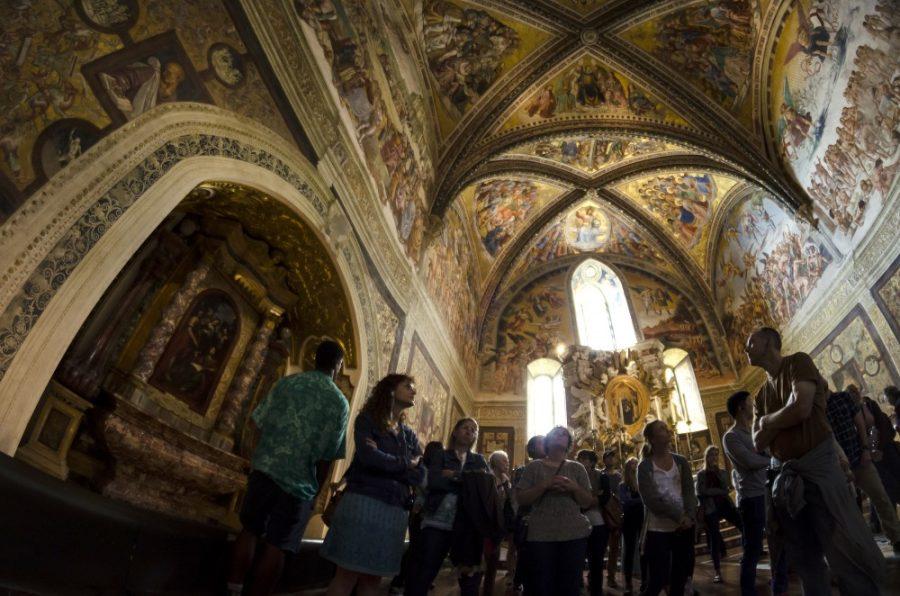Open-source geologic data analysis from a cafe in Italy? The UA Office of Global Initiatives says yes.
UA Global Initiatives has just unveiled its newest program geared toward, though not exclusively to, geology students acquiring and analyzing Earth observation data sets. The program, called Accessible Earth, takes place in Orvieto, Italy, over the course of six weeks during the summer.
The goal of the program is to help upper-division undergraduates and early career graduate students use open-source software and data science technologies to perform innovative geologic research. The program can replace Field Camp, the traditional capstone for geology students, which is mostly mapping. Instead, Accessible Earth lets students use more computer-based analysis.
The first-time program is being led by Rick Bennett, a UA geoscience professor who specializes in tectonics and geodesy, the latter of which deals with measuring fundamental properties of the Earth: geometry, gravitational fields and orientation in space.
Accessible Earth will allow students to learn various software tools for mapping, interactive analysis and online scientific collaboration relevant in today’s modern scientific community. The software utilized is open source and can be accessed by anyone at any time from anywhere in the world for free, making the course’s technology truly accessible.
The technologies being utilized in Accessible Earth are rarely taught to undergraduate students, and Bennett is hoping to change that.
According to Bennett, when students begin graduate school, there is a steep learning curve when it comes to these programs and it can take students one to two years to fully learn this type of software. But having experience at the undergraduate level can help prepare students for their future education.
“People can synthesize all the knowledge they learned but can also gain tools when they go to grad school or even a job,” Bennet said. “[They can] just hit the ground running and outpace all of their peers.”
Accessible Earth is accessible in another respect. Bennett is working with Diedre Lamb, senior access consultant for the UA Disability Resource Center, to create a fully accessible UA study abroad program for all students.
“[The DRC] had the opportunity to work with the geosciences department to help create a class and remove barriers ahead of time,” Lamb said. “We consider all known barriers so all the participants have as much access as possible.”
Accessible Earth isn’t totally confined to computers, though. Students attending will also have the opportunity to explore other geologic marvels on a five-day field trip during the program. The field trip includes a visit to the Italian Alps and Venice to observe modern-day costal hazards. Students will also see firsthand the tectonics of the Mediterranean region and pay a special visit to Ötzi the Neolithic iceman, an extremely well-preserved mummy from 3300 BCE.
In addition to learning scientific data technologies and exploring the geology of Italy, students have the opportunity to immerse themselves in rich Italian culture, exploring the country on their own with access to famous museums, Renaissance architecture and the beautiful Italian countryside.
Bennett said he also hopes the class can participate in activities such as cooking classes that are not necessarily tied to science and are aimed toward increasing diversity awareness.
Follow Bailey Bellavance on Twitter.









